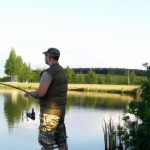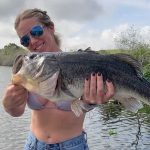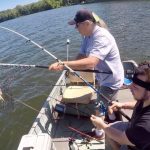Fishing is a beloved pastime for many, but for some, it is more than just a hobby – it’s a way of life. Whether you’re an experienced angler or a beginner, the timing of your fishing trip can make all the difference in your success.
The best time to fish varies depending on a number of factors, including the species of fish you’re targeting, the location of the fishing spot, and the time of day. In this article, we’ll take a look at the best times to fish for different types of fish, as well as the best times of day and the best months to fish.
First and foremost, it’s important to understand the behavior patterns of the fish you’re trying to catch. Different species of fish have different feeding habits, and this can greatly affect the best time to fish.
For example, bass are most active during the early morning and late evening, when the water is cooler. They tend to feed on smaller fish and insects during these times, so lures and baits that mimic these types of prey are most effective.
Trout, on the other hand, are most active during the middle of the day when the water is warmer. They tend to feed on insects and other small aquatic creatures, so flies and small lures are most effective.
Another important factor to consider is the location of your fishing spot. For example, fishing in a freshwater lake or river will have different timing than fishing in a saltwater bay or ocean. Freshwater fish are typically more active during the warmer months, while saltwater fish are most active during the cooler months.
The time of day is also an important factor to consider when planning your fishing trip. As mentioned earlier, bass and other freshwater fish are most active during the early morning and late evening, when the water is cooler. Saltwater fish, on the other hand, are typically more active during the middle of the day when the sun is high.
However, it’s worth noting that the best time of day to fish can also depend on the weather and the tides. For example, fishing during a full moon or during a new moon can be more productive because the tides are stronger and can bring more fish into the area.
In addition to the species of fish, location, and time of day, the best months to fish also vary depending on the type of fishing you’re doing. For example, the best time to fish for bass and other freshwater fish is during the warmer months of the year, such as May, June, and July.
Saltwater fishing, on the other hand, is typically most productive during the cooler months of the year, such as October, November, and December. During these months, the water is cooler and the fish are more active.
It’s also worth noting that the best time to fish can also depend on the weather conditions in the area. For example, fishing during a period of high pressure can be more productive, because the fish are more active when the weather is stable. On the other hand, fishing during a period of low pressure can be less productive, because the fish tend to be less active when the weather is unstable.
Fishing Calendar by Species
Below are some specific calendar year times recommended for catching the particular fish species.
- Bass
- Catfish
- Trout
- Crappie
Best Times to Catch Bass
Bass fishing is a popular pastime for many anglers, and with good reason. These freshwater fish are known for their aggressive behavior and fighting spirit, making them a thrilling catch. However, to be successful at bass fishing, it’s important to understand the best times to catch these fish.
The best time to catch bass is during their feeding times, which are typically early in the morning and late in the evening. These fish are most active during these times, when the water is cooler and the light is low. During the early morning, bass can be found near the surface, feeding on smaller fish and insects. In the evening, they tend to move deeper into the water to feed.
It’s also worth noting that the best time to catch bass can also depend on the weather and the tides. For example, fishing during a full moon or during a new moon can be more productive because the tides are stronger and can bring more fish into the area. Similarly, fishing during a period of high pressure can be more productive, because the fish are more active when the weather is stable.
Another important factor to consider is the location of your fishing spot. For example, fishing in a freshwater lake or river will have different timing than fishing in a saltwater bay or ocean. Freshwater fish are typically more active during the warmer months, while saltwater fish are most active during the cooler months.
The best months to catch bass are typically during the warmer months of the year, such as May, June, and July. During these months, the water is warmer and the fish are more active.
In conclusion, the best time to catch bass is during their feeding times, which are typically early in the morning and late in the evening. It’s important to pay attention to the weather and tide conditions, as well as the location of your fishing spot. With a little bit of research and understanding, you can increase your chances of catching a trophy bass on your next fishing trip.
Best Times to Catch Catfish
Catfish are a popular catch among anglers, known for their distinctive taste and strong fighting spirit. To increase your chances of catching catfish, it’s important to understand the best times to fish for them.
Catfish are primarily nocturnal feeders, which means they are most active at night. They are known to feed heavily during the hours of darkness, making them a prime target for anglers fishing at night. In addition, catfish tend to be less active during the day, making it less likely to catch them during daylight hours.
However, it’s not just the time of day that is important when fishing for catfish. The time of year also plays a crucial role. During the spring, when water temperatures begin to rise, catfish will begin to move towards the shallows to spawn. This makes spring a prime time to catch catfish, as they will be more active and more likely to bite.
The summer months can also be a good time to catch catfish, as they will be found in deeper, cooler waters. In the fall, catfish will begin to move back towards the shallows as the water temperatures cool down. This makes fall another prime time to catch catfish.
Another important factor to consider when fishing for catfish is the weather. Catfish are known to be more active during overcast and rainy days. They are also more active during periods of high pressure, when the weather is stable.
In conclusion, the best times to catch catfish are at night and during the spring, summer and fall. Pay attention to the weather and the time of year, as well as the location of your fishing spot. With a little bit of research and understanding, you can increase your chances of catching a trophy catfish on your next fishing trip.
Best Times to Catch Trout
Trout are a popular catch among anglers, known for their delicate flavor and fighting spirit. To increase your chances of catching trout, it’s important to understand the best times to fish for them.
Trout are primarily active during the cooler hours of the day, such as early in the morning and late in the evening. These fish are cold-water species, and they prefer water temperatures between 50 and 60 degrees Fahrenheit. Therefore, the best time to catch trout is during the cooler months of the year, such as spring and fall.
During the spring, when water temperatures begin to rise, trout will begin to move towards the shallows to spawn. This makes spring a prime time to catch trout, as they will be more active and more likely to bite. In the fall, trout will begin to move back towards the deeper waters as the water temperatures cool down. This also makes fall another prime time to catch trout.
Another important factor to consider when fishing for trout is the weather. Trout are known to be more active during overcast days, when the sun is not as strong. They are also more active during periods of high pressure, when the weather is stable.
The timing of the tide can also affect the activity level of the trout. The best time to catch trout is during the incoming tide, as it brings food and baitfish towards the shore.
In conclusion, the best times to catch trout are during the cooler months of the year, such as spring and fall, and early in the morning and late in the evening. Pay attention to the weather and the time of year, as well as the timing of the tide. With a little bit of research and understanding, you can increase your chances of catching a trophy trout on your next fishing trip.
Best Times to Catch Crappie
Crappie, also known as white perch or calico bass, are a popular catch among anglers, known for their delicate flavor and fighting spirit. To increase your chances of catching crappie, it’s important to understand the best times to fish for them.
Crappie are primarily active during the warmer months of the year, such as spring and summer. During these months, water temperatures will be warmer, which will cause crappie to move towards the shallows to spawn. This makes spring and summer prime times to catch crappie, as they will be more active and more likely to bite.
Another important factor to consider when fishing for crappie is the time of day. Crappie are known to be most active during the early morning and late evening, when the sun is not as strong. They are also more active during periods of overcast weather, when the sky is cloudy or overcast.
The location of your fishing spot is also important when fishing for crappie. These fish are typically found in shallow waters, such as coves, bays, and around structure such as logs, rocks, and brush piles. Look for areas where crappie are likely to congregate, such as near drop-offs, weed beds, and deep holes.
In conclusion, the best times to catch crappie are during the warmer months of the year, such as spring and summer and during the early morning and late evening. Pay attention to the weather and the time of day, as well as the location of your fishing spot. With a little bit of research and understanding, you can increase your chances of catching a trophy crappie on your next fishing trip.



